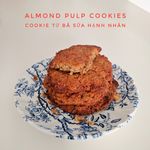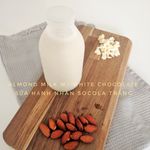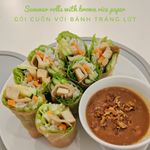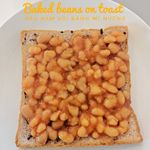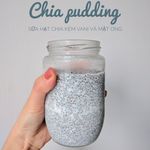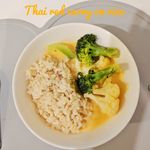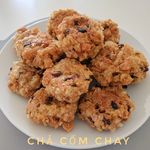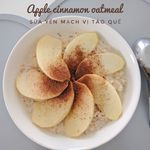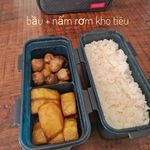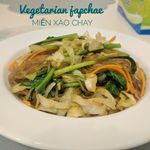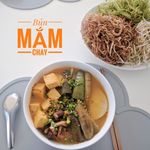I went vegetarian for one month and this is what happened
Yes, that’s a shameless click-bait title.
So a while ago I had decided that I wanted to try living a vegetarian lifestyle and made up my mind to go vegetarian for the full month of April 2017. When someone is a vegetarian/vegan, I always had the urge to ask them “why” because I wanted to know whether they do it for religious, ethical, health or environmental reason. To me these paths that lead to vegetarianism/veganism are distinct and thought that it would help me to understand a little more about the person. But when it came to me, I realised it doesn’t matter, it’s just a lifestyle that someone likes to follow. I am an animal lover who is also conscious about health and the environment, but if I have to pick the strongest factor that made me curious about and maybe adopt this lifestyle it must be health. No doubt, I’m an selfish creature whose utmost concern is myself.
If you are reading this I don’t think I need to lay an argument about why a plant-based diet is superior in terms of health. I just wanna say the point where I gave serious thoughts about it was when I watched the documentary “Forks Over Knives” on Netflix. I also read about Fukuoka’s natural farming and Ohsawa’s macrobiotics diet at that time. And for a while I have been conscious of what I eat, try to eat organic as much as possible, just did not eliminate meat from my diet yet.
Another point that may be relevant is, in Vietnam, most vegetarians are vegetarians for religious reason. Buddhism and some other Asian religions discourage the killing of animals. Many people eat vegetarian food on the 1st and the 15th of every lunar month as those are days that you make offerings to the Gods and you ought to present your purest self before them. Some people go full-on vegetarian. But while in English the term “vegetarian” refers to someone who consumes also eggs and dairy, most vegetarians in Vietnam are lacto-vegetarians, meaning they can consume dairy products (extracting milk is not killing) but do not eat eggs for many eggs sold in the market here are fertilised and sometimes it’s hard to distinguish, so no eggs altogether. I explain it just to say that, as I am not religious and didn’t go vegetarian for religious reasons, I use the term in the Western sense, or to be precise it is lacto-ovvo-vegetarianism. It was my first time so I gave myself some leeway and did not go full vegan (although for the whole month I was always conscious of the amount of eggs and dairy I consumed, so that not to rely on them too much for protein).
I went vegetarian cold turkey, which means on the eve of the last day of March, circumstance made me to have a buffet dinner. It was an expensive buffet so I had to eat as much as I could, the most expensive food that I could find, of course. I gave no warning to my body when I switched completely the next morning. While I guessed that it must take some adjusting for my body, I didn’t know that it came in the form of heavy bloating and a gassy stomach. It was quite strong in the first weeks or so, with the bloating building up during the day and got worst at night, eased completely in my sleep and then started again the next day. I went to google the symptoms and found out many also encounter this problem. As I understand, it was the body adjusting to the extra amount of fiber that was consumed, because much of the enzyme that is used to digest fiber has been destroyed when we eat an excess amount of meat (especially industrialised farmed meat with lots of growth hormones and antibiotics) for a long time. The symptoms eased up gradually after about two weeks and was almost unnoticeable at the end of my trial month.
The hardest thing about being a vegetarian for me is not missing the taste of meat, but the extra time required to plan and cook our own meals. Usually my husband and I eat lunch at work and I only have to cook dinner, so when we decided to try vegetarian, it means I had to cook an extra meal everyday for us to bring to work. Our lunches were simple but because I am not the one who likes to repeat myself, I don’t want to eat leftovers of previous day’s dinner, or cook meals in batch to eat for a few days in a row, it was even more time-consuming. I had to make fresh meals everyday. Which leads me to another point, as I suck at planning and always want to do things spontaneously, I didn’t have a list in mind of what I want to cook for the week to shop once weekly, I almost had to shop everyday. And the thing with fresh produce is that most often you can’t freeze it in the freezer so even more reason to visit the shop everyday. All and all it took me a lot more time than usual.
Because I am a foodie, so vegetarian or not the food I eat has to be good, and more importantly, not boring. So for the first week or so, I was quite stressed with what to eat that food became the constant topic in my mind. I watched so many vegetarian and vegan meal prep videos on YouTube that for a while it was almost the only thing I got suggested in the home page.
Okay, so what did I eat? And where did I get my protein from? These seem like the two most common questions people have in mind about a vegetarian. Most people think that meat is the main source of protein, and a meat-less lifestyle would result in a weak and frail body. That is wrong, of course. You can easily Google vegan bodybuilders, to whom protein is even more important than anyone of us. Meat has a lot of protein, but it comes with lots of negatives too, and is in no way the only source of protein. I got a lot of comments like “How can you be strong eating vegetarian food?”, or worse, “You’re making your husband weak by feeding him just vegetables.”. These statements are wrong on so many levels, don’t even get me started. Anyway, lots of vegetarian food has more protein, or calcium, than meat and dairy, you just have to do your research. For us, we tried not to rely too much on soy products (for GMO concern) and dairy or eggs, but got our main protein from other legumes. I incorporated different kinds of beans (red, mung, black, etc. anything I felt like grabbing for that day) into our brown rice. Just simply soak the beans the night before and they are ready to be tossed in with the rice in the rice cooker. Or if you don’t have time or forget to soak them (like I often do), just put them in a pressure cooker for about 20 minutes and then cook them in the rice cooker with your rice. I also made dessert with beans, or toss canned beans or peas into stir-fried dishes. Chia seeds are also a great source of protein and calcium, they can easily be added to your drinks and cereal. I included pictures some dishes I made during that month below, of course in no way they represent all the food we ate but I hope they can give you some ideas if you struggle like me in the beginning.
The thing for me here is knowing what is good and bad and eat accordingly without becoming extreme. I allowed myself to eat eggs, dairy and soy, but with awareness of their goods and bads. Same goes with processed food. As much as I know fresh produce is way better than processed, sometimes time and availability make processed food a better choice at that moment. Legume is an example, cooking it takes hell lots of time, and also to have more variety, sometimes imported canned beans is not a bad idea. Again, the same with eating out. Although we cooked a lot more, sometimes we got home late from work or when I needed a break from all the meal planning and cooking, we ate out. Ho Chi Minh city is probably the best city in Vietnam to be a vegetarian, as vegetarian options are more widely available here than in anywhere else in the country, and most of the time very affordable. We found a few places that serve really good vegan/vegetarian food that we returned over and over again. Eating out also helped curb my “cravings”, which means I missed normal foods but just the taste of them, not necessarily the meat, so eating out really helped because most restaurants make great vegetarian dupes of normal Vietnamese dishes.
Another interesting thing I think I need to point out is, as during this period I sometimes tracked my macros to make sure I was having a balanced diet of all necessary nutrients (mostly I was worried about not having enough protein), I found out that it is much harder to fulfill my recommended daily intake of fiber than it is with protein. During a vegetarian diet! So don’t worry about not having enough protein being a vegetarian, protein is plenty in plants, as long as you have a healthy variety of plant- based food and try your best to eat fresh food as much as possible. But being vegetarian or not, it is most likely that you are not eating enough fiber, so always pay attention to that. (If you’re wondering, I used https://cronometer.com/ to tracked my macros, it works best with fresh food because processed food varied too much between brands and countries).
If you wonder whether I felt any significant improvement in health or fitness after one month eating on vegetarian food. The simple answer is No. But we didn’t experience any downside in terms of health either (except for that bloating in the beginning). We even participated in an obstacle course race in April (Champion Dash) and finished it. If you go into this expecting a miracle, especially one after such short time as one month, I suggest either don’t do it or change your expectation. I did vegetarian because I know it is the better option, not because I wanted it to fix any of my problems. I felt good because I knew I was doing the best for my body as much as I knew no animal was killed to be my food. Another important thing that I feel has never been stressed enough is vegetarian food does not instantly mean better for health, it also depends largely on what ingredients you choose as well as how they are cooked. A lot of vegetarians restaurants in Vietnam are there for religious reason so their dishes are not necessarily healthy. It’s like you can’t eat french fries for a month and expect to be healthy, right?
Below are some of the highlights of what we ate during April. I hope they inspire you to make some changes to your lifestyle too, or at least see that vegetarian food does not need to be bland or boring at all.
